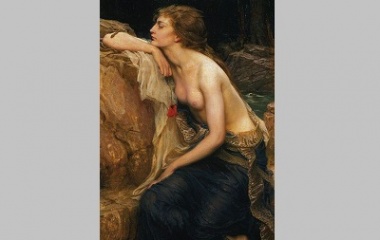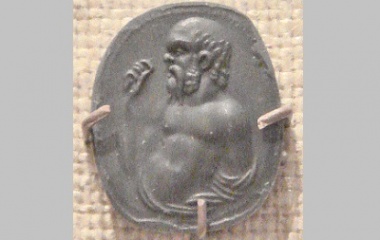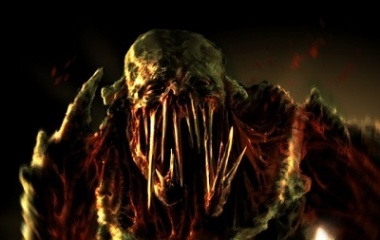What is a Daemon?
A Daemon is a semi-divine spirit, usually created when a noble person or a hero dies. These beings act as a go-between for gods and mortals, delivering divine messages and blessings to mortals or reporting bad behavior to the gods.
Characteristics
Physical Description
Daemons are described as both air and earth spirits. In some texts, they are a swarm of thirty thousand magnificent beings, filling the skies between the mortal world and the divine world. In other texts, they descend from their lofty skies and wander over the earth, where they are invisible or shrouded in mist. Occasionally, a few of them, like Agathos and Limia, may appear as serpents.
Social Status
When Cronus, the leader of the Titans, still ruled over the world, he created a “Golden Race” of men. Although these men were mortal, they lived much like gods, with wonderful strength, merry feasts, and wise, pure hearts. When one of the Golden men passed away, he became a Daemon and continued to wander the earth, enjoying its blessings, and watching over its future generations.
The Daemons had an important role during the reign of Cronus. Cronus recognized that humans are always susceptible to corruption, when they are placed in positions of power, and that human civilization is weakened by its corrupt leaders. Therefore, he appointed Daemones as rulers over human civilization. The scheme was highly successful, as the more noble beings
“with much comfort to themselves and much to us, took charge of us and furnished peace and modesty and orderliness and justice without stint, and thus made the tribes of men free from feud and happy.”
Unfortunately, the fall of Cronus resulted in the fall of this blissful social order as well. When Zeus seized control from his father, the Golden Daemones were replaced by an inferior group of “Silver Daemones.” These beings have less authority over men than their golden predecessors, but their influence is still powerful. If they catch you being cruel or unjust, they can report you to the gods for punishment. On the other hand, if they see kindness and modesty in you, they can bless you with a rich harvest.
Unfortunately, not all of the Silver Daemones are noble-hearted. They are sorted into two groups: the benevolent agathodaimons and the malevolent kakodaimons. The more devilish spirits frequently abuse their power over us, poisoning our minds with lies or punishing us for no reason.
Special Abilities
Heavy responsibilities rest on the Daemones. Luckily, they have several useful powers, which help them get their work done.
They are excellent travelers, able to disappear and re-appear wherever they wish. They are welcome on Mount Olympus and in the mortal world, and they can even travel to the underworld and back. No boundary can prevent them from going where they’re needed.
As descendants of the great earth goddess, Gaia, they have a natural connection with the earth. If they choose to bless your soil, your crops will grow rich and bountiful. They can even save a starving man from hunger by summoning fruit from the earth.
Although the spirits are invisible to men, their presence can be felt, and their voices can be heard. They are extraordinarily intelligent, even able to predict the future. When they have an important message to deliver, they can send it to you in a dream, or even whisper it directly into your heart.
Related Creatures
As Christianity began to take over Greek and Roman traditions, Christian scholars produced several new interpretations for Daemons.
The most famous re-make is the “demon.” Christian demons are based on Roman stories about kakodaimons, the evil spirits who persecute men with bad luck and sinful impulses.
Another re-make is the “guardian angel.” Daemons, who are described as semi-divine beings who are created when good men die, are very similar to Christianity’s angels. The common Roman belief that Daemons watch over us inspired the Christian belief in guardian angels, who do the same.
Cultural Representation
Socrates
Socrates, the father of Greek philosophy, was famous for claiming that he was born with a personal Daemon, who the gods had given to him as a gift. Socrates described his Daemon as an “internal oracle,” meaning that the spirit was part of himself, instead of a separate being. The oracle spoke out whenever Socrates was about to behave wrongly, but when he was correct, it said nothing. In this way, Socrates’ Daemon was a lot like today’s “conscience.”
Plato
Socrates’ most famous student, Plato, put a slightly new twist on the Daemon. Plato claimed that a Daemon was assigned to every man, at the time of his birth, so that he would always have a noble spirit to guide and guard him through life. Unlike Socrates, Plato specified these were external beings. They were attached to men, but they didn’t belong to men. In this way, Plato’s Daemon was a lot like today’s “guardian angel.”
Aristotle
Plato’s most famous student, Aristotle, continued to modify the concept of the Daemon. He gave even more power to the spirits, claiming that a person’s happiness and character depended on the quality of his Daemon. In this way, Aristotle’s Daemon was a lot like today’s “demons,” which can possess people and control their actions.
Aristotle passed his concept of the possessive Daemon along to Alexander the Great, one of his students. When Alexander rose to power, he encouraged his subjects to worship his Daemon, rather than worshipping him. This tradition continued well into the height of the Roman empire, with glorious Daemons like “Augustus” being recycled between leaders and exalted by the public.
Modern Daemon
Today, Daemons are rarely discussed by the public. They have been replaced by similar concepts, like the conscience, the guardian angel, or the demon.
However, the beings are still popular in spiritual and psychological circles. They are discussed in Buddhist texts and in the writings of Carl Jung. Most scholars today have returned to a Socratic interpretation of Daemons; they believe the spirits symbolize qualities that belong to men, like our intelligence and morality, and that their voices are really just a part of us.










